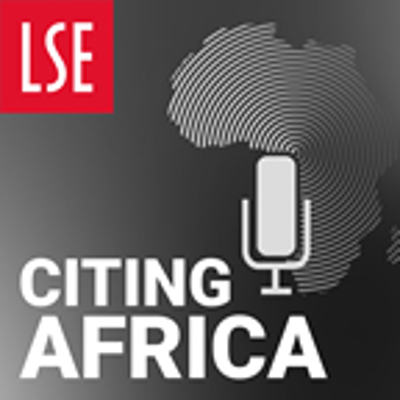
Citing Africa
Englisch
Kostenlos bei Podimo
Kostenlos hören bei Podimo
Starte jetzt und verbinde dich mit deinen Lieblingspodcaster*innen
- Vertraut von über 1 Mio. deutschen Hörer*innen
- Über 1.000 lokale Podcasts und Shows – nur bei Podimo
- Keine Zahlung nötig
Mehr Citing Africa
The Citing Africa podcast investigates the decline of Africa-based contributions in top international academic journals, provides practical guidance to young scholars seeking to publish their own work and takes a critical look at the wider context.
Alle Folgen
30 FolgenSeries 3 | Episode 3 - Assessing the Assessment, a look at the World Bank’s CPIA
Contributor(s): | By Ioana Puricel and Nick Muller This episode builds on the previous theme by zooming in on the World Bank’s Country Policy and Institutional Assessment (CPIA) score. The scoring is based on what the Bank considers to be ideal policies and institutional qualities that contribute to growth, poverty reduction and thus aid effectiveness. We discuss criticisms and reforms for the CPIA with two prominent development scholars: Erik Thorbecke and Yusi Ouyang. Notes and references: IEG (2009). The World Bank's Country Policy and Institutional Assessment: An IEG Evaluation OECD (2020). External financing to Least Developed Countries (LDCs): where we stand Thorbecke, Erik. and Ouyang, Yusi (2016). Is Sub-Saharan Africa Finally Catching up?
Series 3 | Episode 2 - IMF creditworthiness: implications for knowledge production and African development
Contributor(s): | Notes and references: Bienefeld, Manfred. “Structural Adjustment: Debt Collection Device or Development Policy?” Review (Fernand Braudel Center), vol. 23, no. 4, 2000, pp. 533–82, http://www.jstor.org/stable/40241499. Accessed 9 May 2022. Chwieroth, Jeffrey M. Capital Ideas the IMF and the Rise of Financial Liberalization. Princeton University Press, 2010. Copelovitch, Mark S. The International Monetary Fund in the Global Economy: Banks, Bonds, and Bailouts. Cambridge University Press, 2010. Dreher, Axel, and Nathan M. Jensen. “Independent Actor or Agent? an Empirical Analysis of the Impact of U.S. Interests on International Monetary Fund Conditions.” The Journal of Law and Economics, vol. 50, no. 1, 2007, pp. 105–124., https://doi.org/10.1086/508311. Gehring, Kai, and Valentin Lang. “Stigma or Cushion? IMF Programs and Sovereign Creditworthiness.” SSRN Electronic Journal, 2018, https://doi.org/10.2139/ssrn.3169341. Haque, Nadeem Ul, et al. “Rating the Raters of Country Creditworthiness.” Finance & Development, March 1997, International Monetary Fund, 1997. Mkandawire, Thandika. “Disempowering New Democracies and the Persistence of Poverty.” Globalisation, Poverty and Conflict, 2004, pp. 117–153., https://doi.org/10.1007/1-4020-2858-x_8. Mkandawire, Thandika. “Lessons from the Social Policy and Development of South Korea: An Interrogation.” Learning from the South Korean Developmental Success, 2014, pp. 11–30., https://doi.org/10.1057/9781137339485_2. Mkandawire, Thandika. “The Spread of Economic Doctrines and Policymaking in Postcolonial Africa.” African Studies Review, vol. 57, no. 1, 2014, pp. 171–198., https://doi.org/10.1017/asr.2014.12. Mkandawire, Thandika. “Thinking about Developmental States in Africa.” Cambridge Journal of Economics, vol. 25, no. 3, 2001, pp. 289–313, http://www.jstor.org/stable/23600389. Accessed 9 May 2022. Nelson, Stephen C. “Playing Favorites: How Shared Beliefs Shape the IMF's Lending Decisions.” International Organization, vol. 68, no. 2, 2014, pp. 297–328., https://doi.org/10.1017/s0020818313000477. Stone, Randall W. Controlling Institutions International Organizations and the Global Economy. Cambridge University Press, 2011. Stone, Randall W. “The Political Economy of IMF Lending in Africa.” American Political Science Review, vol. 98, no. 4, 2004, pp. 577–591., https://doi.org/10.1017/s000305540404136x. Stone, Randall W. “The Scope of IMF Conditionality.” International Organization, vol. 62, no. 4, 2008, pp. 589–620., https://doi.org/10.1017/s0020818308080211. Vygotsky, Lev S. Mind in Society: The Development of Higher Psychological Processes. Harvard University Press, 1978. “What Is the 'Gentleman's Agreement'?” Bretton Woods Project, 28 Oct. 2021, https://www.brettonwoodsproject.org/2019/07/what-is-the-gentlemans-agreement/. Woods, Ngaire. The Globalizers: The IMF, the World Bank, and Their Borrowers. Cornell University Press, 2014.
Series 3 | Episode 1 – Who Owns Knowledge: the Politics of Knowledge Production
Contributor(s): | This podcast asked the question, what is considered legitimate knowledge within the development studies field? It explores the role of the 'Journal Impact Factor' in solidifying existing north-south hierarchies and how funding affects the kind of research produced. It discusses the role of CODESRIA and considers how language hierarchies and barriers shape who can speak about African countries within international academia. Hoffmann, Nimi. “The Knowledge Commons, Pan-Africanism, and Epistemic Inequality: A Study of CODESRIA.” Rhodes University; Faculty of Humanities, Institute of Social and Economic Research, 2018. https://commons.ru.ac.za/vital/access/manager/Repository/vital:27764?site_name=Rhodes%20University. Okere, Theophilus. “Is There One Science, Western Science?” Africa Development30, no. 3 (December 15, 2005). doi:10.4314/ad.v30i3.22227.
Explaining the hegemony of financial inclusion
Contributor(s): Tao Platt, Jolien Thomas, Sam Cressey, Julie Zollman | Financial inclusion has not become hegemonic because of its innate potential to improve livelihoods, but because it does not require a fundamental transformation of existing social structures. Instead, it drives the interests of major development actors. In this episode, we are joined by Julie Zollman from Tufts University to discuss financial inclusion and why it has gone viral as a solution for international development. Speakers: Tao Platt, Jolien Thomas, Sam Cressey and Julie Zollman
Public investment and graduate underemployment in Benin (Investissements publics et chômage des jeunes diplômés au Bénin)
Contributor(s): Selena Chavez, Kayla Choun, Heloise Bertrand | Quelle est la cause du taux de chômage croissant chez les diplômés au Bénin ? À travers une série d'entretiens menés avec des étudiants universitaires et des enseignants, les faiblesses structurelles du système éducatif béninois sont analysées. En s'appuyant sur le cas du Bénin, l'épisode soutient que, en tant qu'externalité positive, l'éducation devrait être accessible à tous et devrait également faire l'objet de subventions publiques. Speakers: Selena Chavez, Kayla Choun and Heloise Bertrand















































